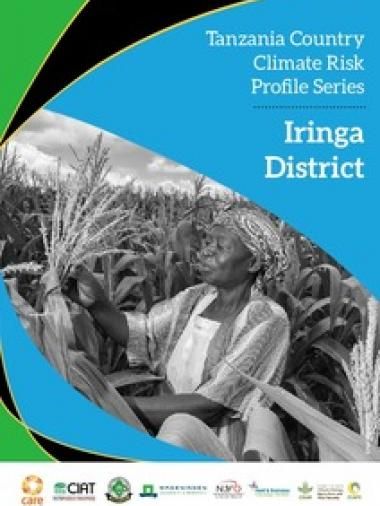Tanzania Country Climate Risk Profile Series. Iringa District

Climate change is a major challenge facing the agriculture sector in Tanzania. The impacts of climate change on agriculture have been documented in several government reports, projects, and policies (URT, 2017, 2013, 2014, 2015; URT, 2007). Small-scale farmers are the most affected; their livelihoods are primarily agriculture-based, with relatively low adaptive capacity. Historical climate information shows that temperatures have significantly increased in recent years, while precipitation has remarkably
decreased (URT, 2014). Associated effects of these changes include geographic shifts of agro-ecological zones (AEZs), rainfall variability, prolonged dry spells, and reduction of water volumes in rivers, lakes, and other water bodies. Climate projections indicate that the adverse effects of climate change are expected to increase in magnitude in the coming years. Temperatures are likely to increase by 1.4°C by 2030 and 2.1°C by 2070; the northwest and west are likely to experience faster warming (CIAT; World Bank, 2017). Of all economic sectors, agriculture is the most affected. Among employees of the agricultural sector, small-scale farmers are the most vulnerable. At the same time, the agriculture sector is also a major contributor to climate change.
Citación
CIAT, CARE Tanzania. 2019. Tanzania Country Climate Risk Profile Series. Iringa District. International Center for Tropical Agriculture (CIAT), CARE Tanzania.